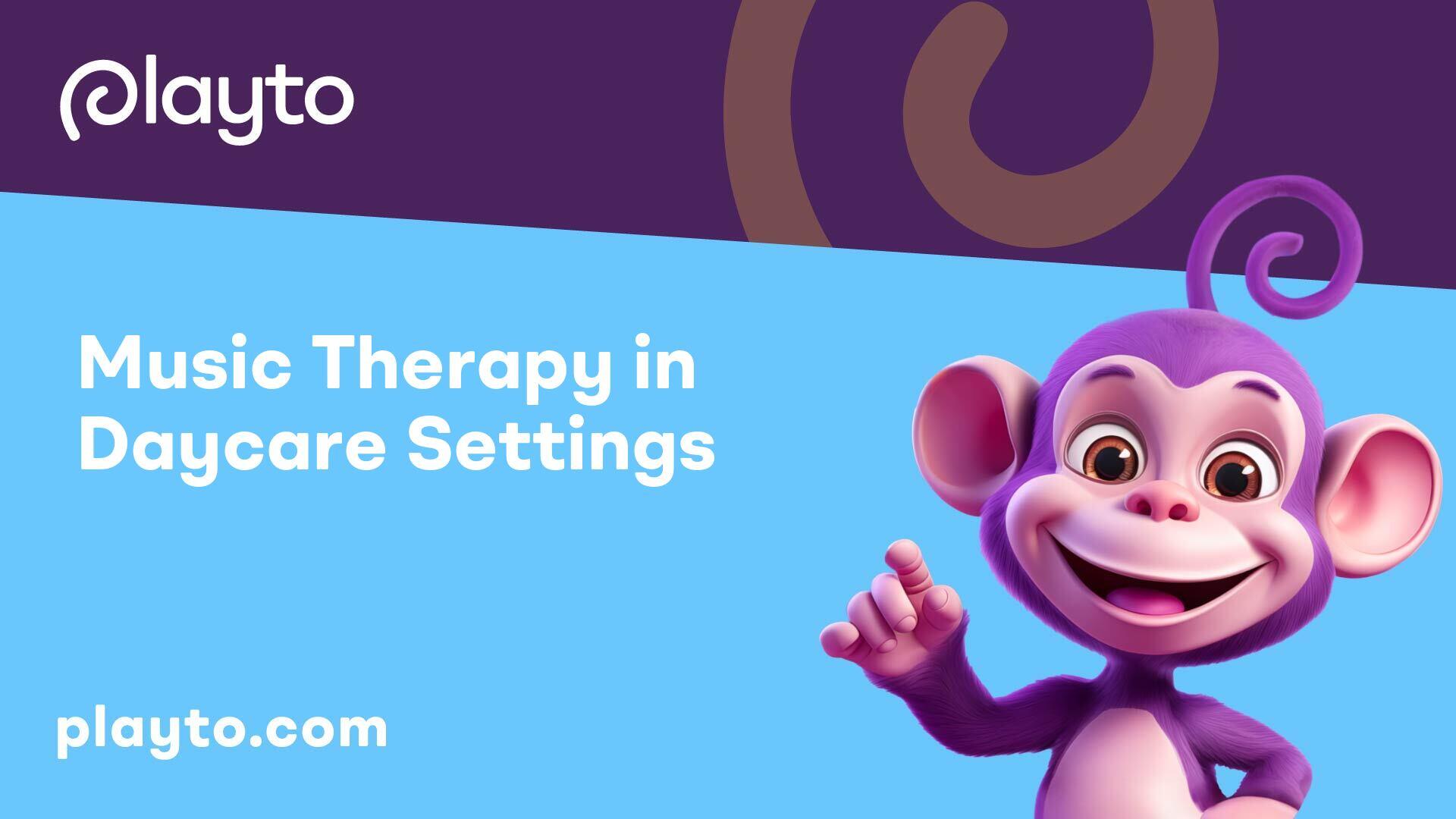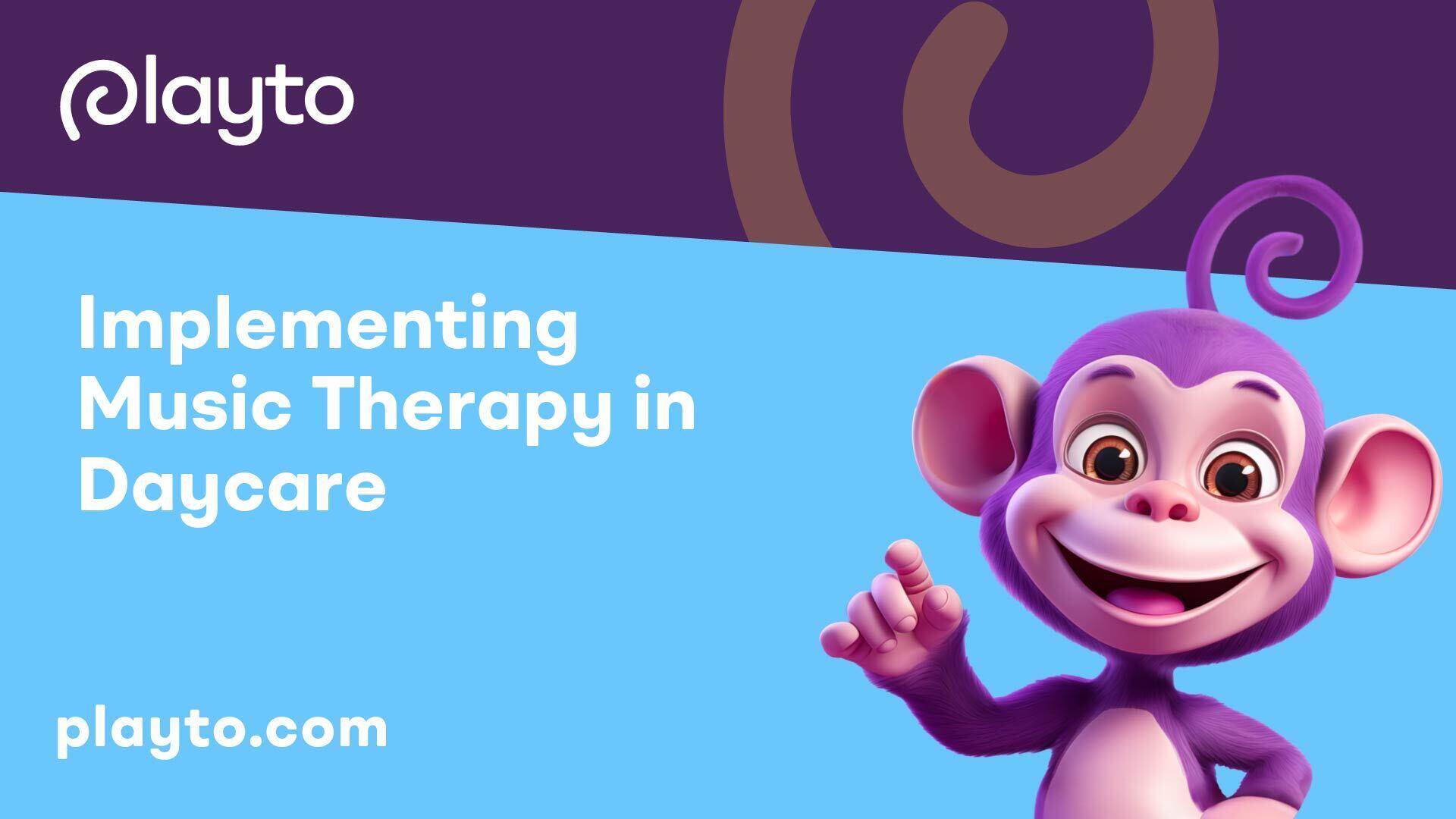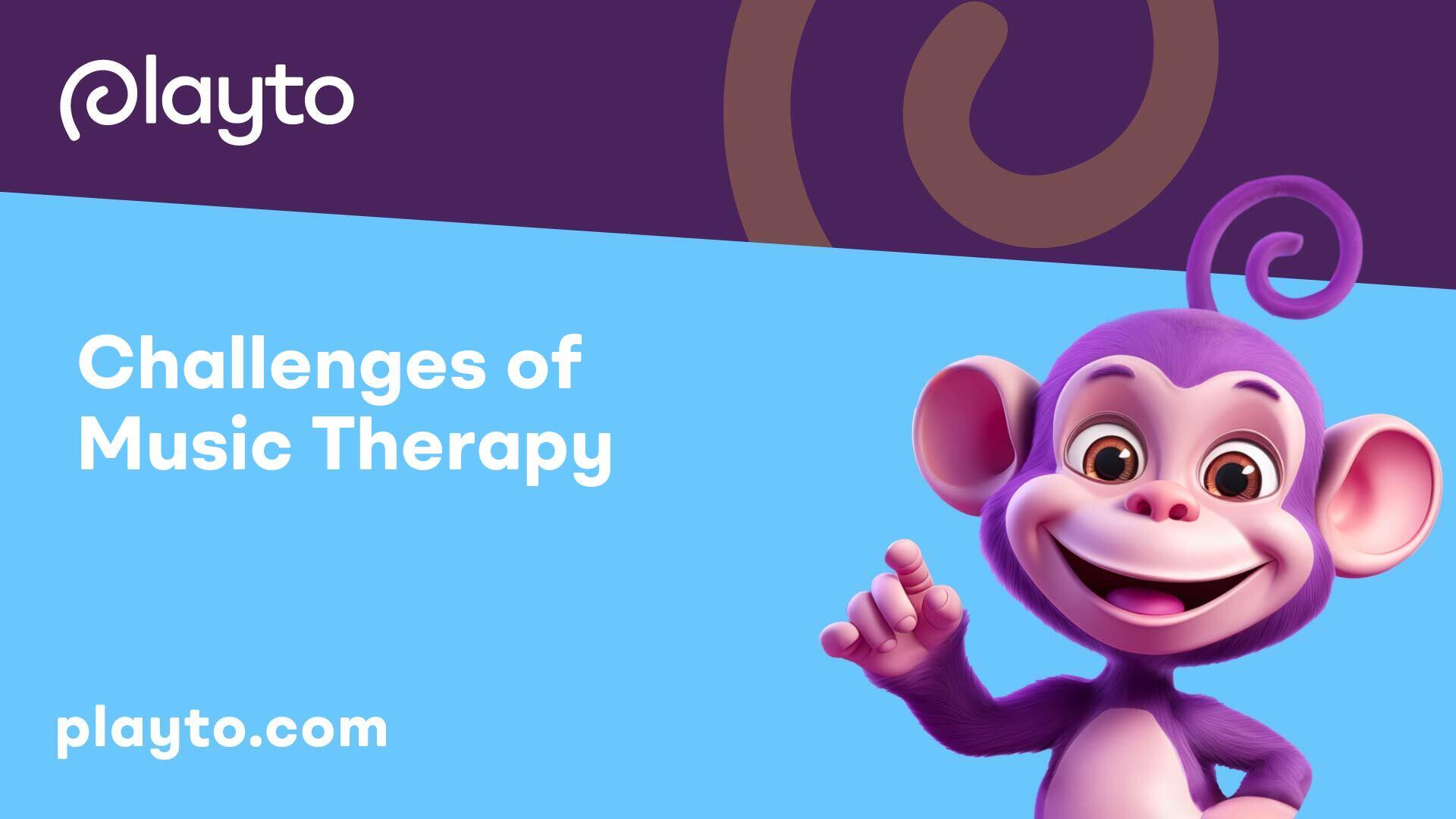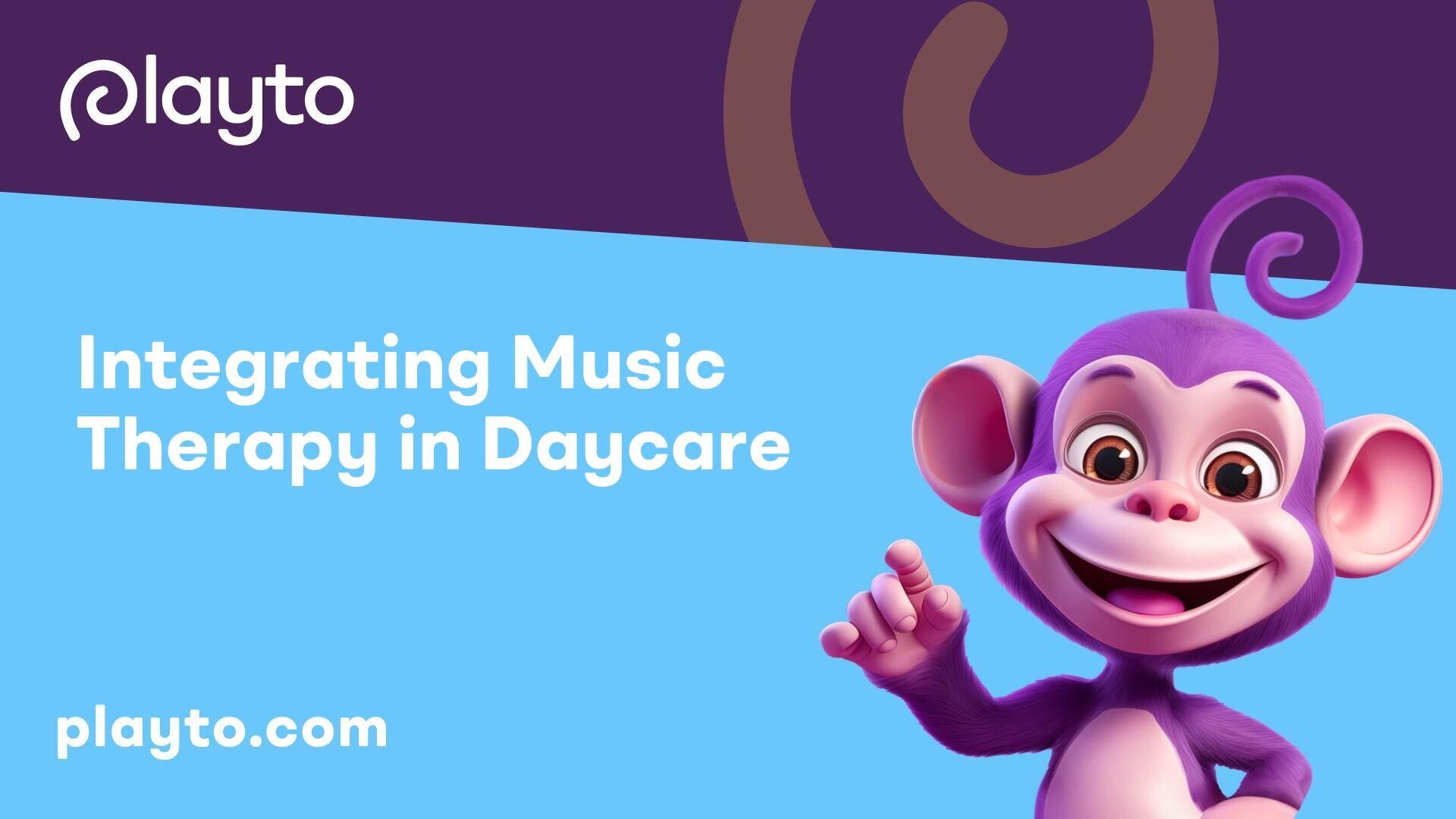
Music Therapy in Daycare Settings
Incorporating music therapy in daycare settings has shown to have a profound impact on the development and well-being of children. By utilizing familiar songs and engaging activities, music therapists aim to enhance not only the children's physical abilities but also their cognitive and social skills.
Benefits of Music Therapy
Music therapy sessions in daycare settings involve playing a variety of songs, ranging from traditional tunes to popular covers. These musical experiences serve as a means to stimulate children both physically and mentally, fostering an environment where they can engage in play through sharing, playing musical instruments, and storytelling. The therapeutic nature of music helps children build essential skills, such as enhancing memory, improving language development, and promoting emotional expression.
Studies have indicated that music therapy interventions have a positive impact on various aspects of child development, including motor skills, language acquisition, social interactions, cognitive abilities, and academic performance. Through music, children can explore their creativity, build self-confidence, and develop a sense of belonging within their daycare community.
Role of Music Therapist
The role of a music therapist in a daycare setting is crucial in facilitating meaningful music experiences for children. Music therapists are trained professionals who design and implement tailored music therapy activities to address the specific needs of each child. They create a safe and supportive environment where children can engage in musical interactions, express themselves freely, and develop essential life skills.
Music therapists work closely with daycare staff and caregivers to integrate music therapy activities seamlessly into the daily routine of the daycare. By collaborating with other professionals, such as educators and healthcare providers, music therapists ensure that the therapeutic benefits of music are maximized for each child's growth and development.
The positive effects of music therapy in daycare settings extend beyond the daycare environment, offering children a platform for self-expression, creativity, and emotional regulation. By nurturing a love for music from a young age, music therapy paves the way for holistic development and sets the foundation for a lifetime of musical enjoyment and well-being.

Implementing Music Therapy in Daycare
Incorporating music therapy in daycare settings can have a profound impact on children's development and well-being. Music therapy activities involve playing a variety of familiar songs, from traditional to pop covers, to engage children physically, mentally, and socially. These activities encourage children to share, play instruments, and immerse themselves in storytelling, creating a positive and interactive environment for learning and growth [1].
Incorporating Music Activities
Music activities are a vital component of music therapy in daycare. Through engaging with music, children can express themselves, enhance their creativity, and develop essential social skills. By incorporating activities like singing, dancing, playing instruments, or even simple rhythmic exercises, daycare providers can create a dynamic and stimulating environment that fosters children's physical, mental, and social development.
Music therapists play a key role in selecting appropriate music activities that cater to the needs and interests of the children. These activities not only provide entertainment but also serve as valuable tools for promoting learning and emotional expression among young children. The diversity of music genres and styles allows for a customized approach that can cater to the unique preferences of each child and create a meaningful musical experience.
To further enhance the benefits of music activities, integrating STEM learning components into music sessions can promote a holistic approach to education by blending music with science, technology, engineering, and mathematics concepts. This interdisciplinary approach can stimulate children's cognitive abilities, creativity, and problem-solving skills through music-based activities.
Working with Special Needs Children
In daycare settings, music therapy can be particularly beneficial for children with special needs. Studies have shown positive impacts of music therapy on students with disabilities, such as enhancing communication skills in children with autism spectrum disorder, improving motor coordination in children with cerebral palsy, and reducing anxiety and depression in children with mental health disorders attending daycare [3].
Music therapists specializing in working with special needs children utilize tailored music therapy techniques to address specific developmental goals and challenges. By creating personalized treatment plans that incorporate music-based interventions, therapists can support sensory regulation, social interaction, and emotional expression among children with diverse needs.
Integrating music therapy into daycare programs can facilitate developmental breakthroughs in children with autism and other special needs. Through sensory-rich musical experiences and interactive sessions, children can improve their communication skills, enhance their social interactions, and achieve greater emotional regulation. The nurturing and supportive environment of music therapy in daycare can empower children to explore their creativity and capabilities in a safe and inclusive space.
By incorporating music activities and working closely with special needs children, daycare providers can create an enriching and inclusive environment that promotes holistic development and well-being among all children in their care.

Challenges of Music Therapy
When considering the integration of music therapy in daycare settings, there are certain challenges that need to be addressed to ensure the effectiveness and sustainability of the program. Two key challenges faced in the implementation of music therapy are consistency and follow-through, and cost considerations.
Consistency and Follow-Through
For music therapy to have a meaningful impact, consistency and follow-through are essential components. Time spent in sessions and the frequency of sessions play a crucial role in achieving positive outcomes, especially for special needs children. It is important to maintain consistency in therapy sessions and ensure follow-through between sessions to monitor progress and make necessary adjustments in the treatment plan to cater to the specific needs of each child.
Moreover, implementing learned music techniques at home and in the community is a vital aspect of music therapy success. This can be time-consuming and challenging for parents, as they need to devote additional effort to reinforce the therapy outside of the daycare environment. Caregivers play a significant role in supporting the child's progress by incorporating music activities into the child's daily routine and providing a conducive environment for continued growth and development.
Cost Considerations
Cost can be a significant concern when it comes to music therapy, particularly in private settings where health insurance coverage may be limited or non-existent. Many health insurance plans do not cover music therapy, or only cover it as an out-of-network service, leading to potential financial strain on families. It is essential for parents to check with their health plan for coverage options and explore alternative funding sources to ensure continued access to music therapy services for their children.
Despite the financial challenges, the promising potential of music therapy as a non-pharmacological intervention in pediatric healthcare cannot be overlooked. It serves as a valuable complement to traditional medical treatments, aiding in the improvement of recovery and overall well-being of children. With increasing recognition of its benefits, music therapy is being more widely applied in clinical treatments worldwide, particularly in fields like autism spectrum disorder and neonatal care where positive outcomes have been observed.
As research continues to demonstrate the positive effects of music therapy, it is imperative to address challenges such as consistency, follow-through, and cost considerations to promote the integration of music therapy in daycare settings and maximize its therapeutic benefits for children. By overcoming these hurdles and fostering a supportive environment for music therapy, daycare centers can create enriching experiences that enhance child development and well-being.
Impact on Child Development
Music therapy plays a significant role in enhancing child development, particularly in the areas of social and emotional development, as well as cognitive and physical development.
Social and Emotional Development
The integration of music therapy in daycare settings can have profound effects on children's social and emotional well-being. According to Harmony Music Therapy, music therapy can help special needs children work through challenges and build on their strengths in social and emotional realms. Through music activities, children can express themselves, develop self-awareness, and improve their emotional regulation skills.
Music therapy sessions that focus on group activities promote peer interaction, cooperation, and communication skills among children. The collaborative nature of music-making encourages children to listen, take turns, and engage with others in a creative and supportive environment. These interactions can lead to increased confidence, empathy, and a sense of belonging within the daycare community.
Cognitive and Physical Development
Recent studies, such as those highlighted by NCBI, have shown that music interventions positively impact children's cognitive functions. Music training has been linked to improvements in attention, memory, executive function skills, spatial intelligence, vocabulary knowledge, and arithmetic skills. Engaging in music activities can stimulate various areas of the brain, fostering cognitive development and enhancing learning capabilities in children.
Moreover, music therapy can also have a notable impact on the physical development of children. Movement-based music activities can help children improve their coordination, motor skills, and physical strength. Dancing, singing, and playing musical instruments not only promote physical exercise but also contribute to sensory integration and body awareness.
By integrating music therapy into daycare settings, caregivers and educators can support holistic child development by nurturing social and emotional intelligence, enhancing cognitive abilities, and promoting physical well-being. The therapeutic power of music provides a creative outlet for children to explore, learn, and grow in a harmonious and enriching environment.
Research Findings on Music Therapy
Exploring the impact of music therapy in daycare settings reveals significant findings related to communication skills, self-esteem, and depression levels among children and adolescents.
Effects on Communication Skills
Research published in the Journal of Child Psychology and Psychiatry highlights the positive effects of music therapy on the communication skills of children and adolescents with social, emotional, and behavioral difficulties. While there was no significant difference in Social Skills Improvement System (SSIS) scores at week 13, participants aged 13 and over in the intervention group showed a remarkable improvement in communication skills compared to the control group. This suggests that music therapy has the potential to enhance verbal and non-verbal communication abilities in individuals facing developmental challenges.
Further studies indicate that music therapy interventions can be customized to cater to the specific needs of children in daycare, allowing them to express emotions and communicate effectively through music, particularly beneficial for individuals with limited verbal communication skills.
Self-Esteem and Depression Improvement
The same research study in the Journal of Child Psychology and Psychiatry also revealed that music therapy significantly contributes to the improvement of self-esteem and reduction of depression scores among children and adolescents with social, emotional, and behavioral difficulties. By engaging in music therapy sessions, individuals experienced a boost in self-confidence while witnessing a decline in feelings of depression.
Music therapy has shown promise in enhancing the emotional well-being of children attending daycare, potentially reducing anxiety and enhancing self-esteem. This underscores the value of integrating music therapy into daycare programs as a holistic approach to supporting emotional health.
These research findings underscore the importance of incorporating music therapy in daycare settings to promote positive outcomes in communication skills, self-esteem, and emotional well-being among children and adolescents facing diverse developmental challenges. Such interventions offer a unique avenue for enhancing social and emotional growth in individuals within daycare environments.
Personalized Treatment Plans
In the realm of integrating music therapy in daycare, personalized treatment plans play a pivotal role in catering to the distinct needs of each child. These plans are designed to tailor music therapy activities according to the individual strengths and challenges of the child, ensuring that the therapy is both effective and engaging.
Tailoring Music Therapy Activities
Customizing music therapy activities allows children to express themselves through music, fostering emotional expression and communication in a nonverbal manner. For instance, a child with limited verbal communication skills may use music as a means to convey emotions or thoughts that they struggle to articulate verbally. By adapting music therapy techniques to match the child's preferences and abilities, therapists can create a supportive environment that encourages growth and development.
Collaborating with Caregivers
Effective collaboration between music therapists, caregivers, teachers, and other professionals working with the child is essential to the success of personalized treatment plans. By involving all stakeholders in the child's care, therapists can ensure continuity of care and align therapeutic goals with the child's overall development. This collaborative approach allows for the integration of music therapy seamlessly into the daycare environment, enhancing the child's learning experience and well-being.
By collaborating closely with caregivers and other professionals, music therapists can gain valuable insights into the child's progress, preferences, and challenges. This collaborative effort ensures that the child receives consistent support and care both within the daycare setting and beyond. It also empowers caregivers to reinforce therapeutic strategies at home, contributing to the child's ongoing development and well-being.
Through personalized treatment plans that emphasize tailoring music therapy activities to meet individual needs and fostering collaboration with caregivers, music therapy in daycare settings can provide a holistic and enriching experience for children, supporting their emotional, cognitive, and social development.
Music Therapy for Children with Autism
Within the realm of integrating music therapy in daycare, a notable application is in providing specialized care for children with autism. Music therapy has shown promising potential as a non-pharmacological intervention in pediatric healthcare, particularly in aiding the development and well-being of children on the autism spectrum.
Sensory Regulation
Music therapy plays a significant role in supporting sensory regulation in children with autism. This therapeutic approach can help children develop a more cohesive sense of order in their environment, contributing to their overall well-being and development [5]. The rhythmic and melodic components of music can assist in organizing sensory input and promoting emotional regulation, providing children with autism a structured and comforting experience.
Developmental Breakthroughs
By integrating music therapy into the daily lives of children with autism, remarkable developmental breakthroughs can be observed. Music therapy has the potential to enhance language skills, increase focus, and expand the imagination of children on the autism spectrum. Through engaging with music in a therapeutic setting, children can experience the joys of self-expression and interpersonal connection, leading to holistic developmental advancements.
Incorporating music therapy into the treatment plan for children with autism alongside other interventions, such as center-based Applied Behavioral Analysis (ABA) therapy, can offer a personalized and comprehensive approach that celebrates the unique capabilities and potential of each child [5]. This integrated approach can guide children with autism on a path that encourages growth, communication skills, and self-expression, culminating in significant developmental progress and overall well-being.
Future of Music Therapy
The future of integrating music therapy in daycare holds immense promise, particularly in the realm of pediatric healthcare. Music therapy is increasingly recognized as a valuable non-pharmacological intervention in pediatric health care settings, complementing traditional medical treatments and fostering improved recovery and well-being for young patients.
Integration in Pediatric Healthcare
Recent research, as outlined by the NCBI, underscores the significant potential of music therapy in clinical treatment for children. The highest quality of evidence for positive effects is reported in fields such as autism spectrum disorder and neonatal care. Music therapy interventions have demonstrated success in enhancing communication skills, physical coordination, psychosocial functioning, and academic achievement among students with special educational needs, including autism spectrum disorder and intellectual and developmental disabilities [6]. Furthermore, music therapy has been shown to enhance cognitive function, attention, memory recall, and overall academic, social, and emotional development in children with developmental delays or learning disorders.
Research and Sustainability
As we look towards the future of music therapy in daycare and pediatric healthcare, ongoing research and sustainability initiatives are paramount. It is vital to continue studying the multifaceted benefits of music therapy on children's outcomes and well-being to guide evidence-based practices and interventions. Studies such as those highlighted by Mary Ann Liebert, Inc. emphasize the positive impact of music therapy on academic achievement, emotional regulation, motor coordination, and psychosocial well-being in students with disabilities, affirming its holistic approach to supporting overall development.
By further integrating music therapy into pediatric healthcare systems and educational settings, we can amplify its positive effects on child development, offering a nurturing and effective approach to enhancing the well-being and quality of life for children in daycare and beyond. This evolution signifies a bright future where music therapy continues to play a pivotal role in fostering the growth and flourishing of young individuals in diverse healthcare and educational contexts.
References
[1]: https://musictherapyconnections.org/2018/03/music-therapy-early-childhood/
[2]: https://www.ncbi.nlm.nih.gov/pmc/articles/PMC5626863/
[3]: https://utahparentcenter.org/music-therapy-benefits/
[4]: https://www.ncbi.nlm.nih.gov/pmc/articles/PMC6473587/
[5]: https://www.handscenter.com/how-music-therapy-benefits-children-with-autism
[6]: https://onlinelibrary.wiley.com/doi/10.1002/rnj.344
[7]: https://www.tandfonline.com/doi/full/10.1080/02693580400336409
